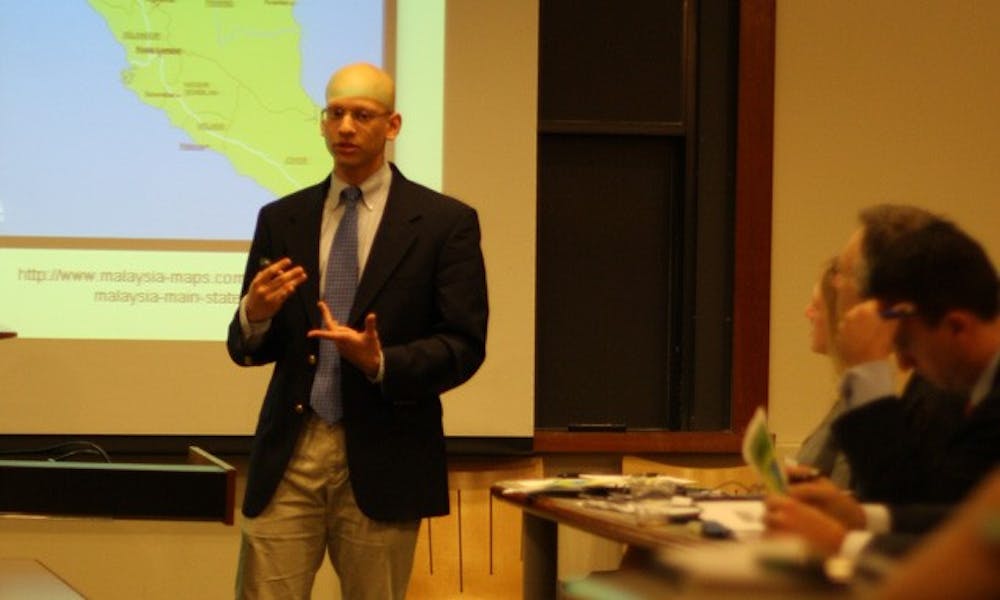Junior Pauline Lim asked for a $1.25 billion loan this week, but her peers at the Winter Forum rejected her proposal.
Lim was representing India in a mock committee on climate change at this week’s Winter Forum, a new annual event sponsored by the Office of Undergraduate Education. This year’s forum, “Making the Green Economy Work,” was hosted by the Nicholas Institute of Environmental Policy Solutions.
Although students representing developed nations rejected her loan, Lim said the forum effectively taught her about implementing a green economy.
“I did not expect the group to get along so well,” Lim wrote in an e-mail. “That was really the best part about it. Everyone was very actively engaged in the different team exercises and that was what made this forum so fruitful and so much fun.”
An award ceremony at the Hart House Wednesday night was the finale of three days of debate among 70 students at the Winter Forum. In addition to competing in a green start-up competition, students also participated in a simulation of the December 2009 Copenhagen Climate Conference and an interdisciplinary faculty panel that addressed the challenges facing an effective green economy.
“There were a lot of unknowns going into the conference, and we were all surprised by how well things went,” said Tim Profeta, director of the Nicholas Institute for Environmental Policy Solutions and a senior associate dean.
Profeta opened the conference Sunday, setting the stage for a panel discussion with participants Chad Holliday, former chairman and chief executive officer of DuPont, Allen Joines, mayor of Winston Salem, N.C, and Davd Orr, Paul Sears Distinguished Professor of Environmental Studies and Politics at Oberlin College. The three discussed the necessity for collaboration among businesses, governments and academics in creating a successful green economy.
Students tried their hands at policymaking when they simulated the Copenhagen Climate Conference. Students sat on committees representing the world’s many nations in attempting to reach a compromise on climate change.
Brian Murray, director for economic analysis at the Nicholas Institute, who attended the Copenhagen Conference last month with Profeta, noted how close the simulation was to the real thing. The rift between the developed and developing worlds proved too difficult to overcome in Lim’s situation, as it was in Europe weeks ago.
But the forum had real results, too. A student competition pitted eight teams against each other with the task of drawing up a green-tech business that would see high capital returns without expelling greenhouse gases into the atmosphere. And the forum ended with President Richard Brodhead awarding $2,000 to the winning team.
“This is what Duke is about,” Brodhead said. “I think that this is an example of bringing intelligent people together, putting them in an environment where everyone becomes smarter and is encouraged to dream up great ideas.”
Get The Chronicle straight to your inbox
Signup for our weekly newsletter. Cancel at any time.

